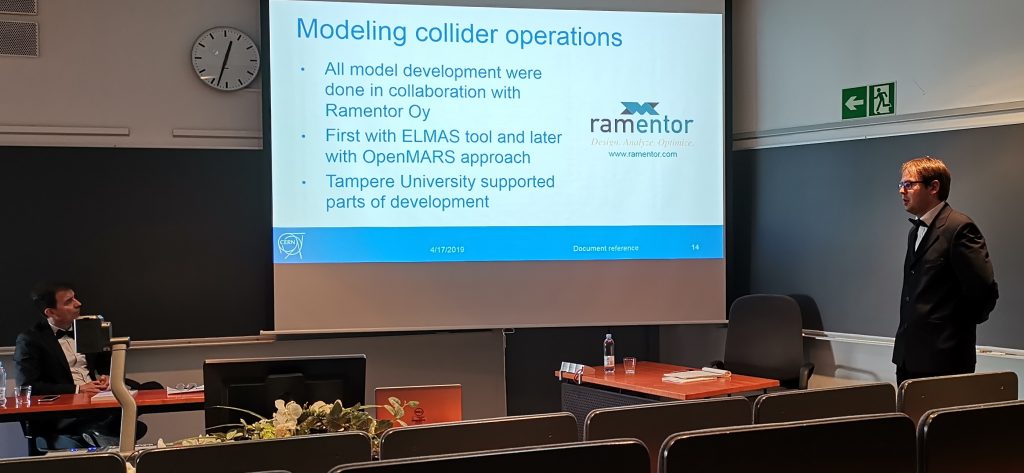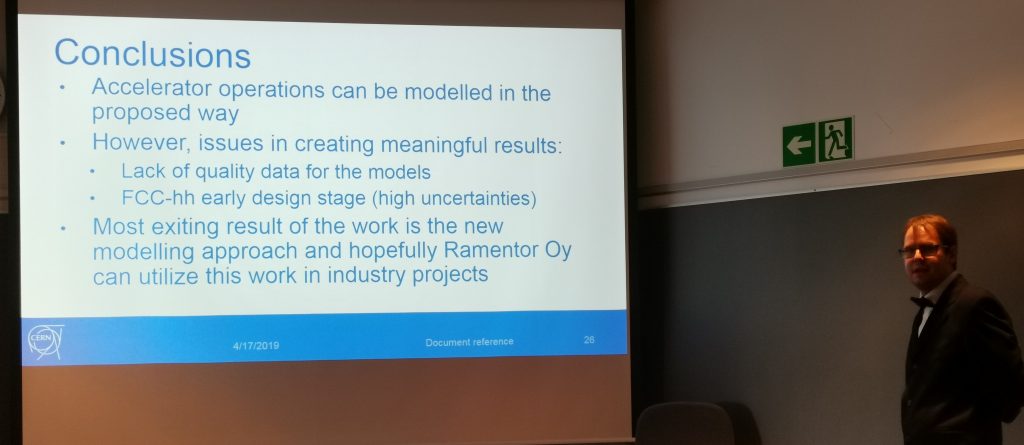Dissertation: Modelling availability of particle colliders


In 2014 Ramentor started a co-operation with Tampere University and CERN to research methods and tools for reliability and risk assessment of particle colliders. The research is a part of Future Circular Collider (FCC) study, which develops scenarios for post-Large Hadron Collider (LHC) era. ELMAS was selected as a tool for model the collider systems and to simulate the particle acceleration process. The model enables assessing availability and collision production, which are essential quality attributes of a particle collider.
An ELMAS model of CERN’s particle collider was created by M.Sc. (Tech.) Arto Niemi. In his doctoral dissertation “Modeling Future Hadron Colliders’ Availability for Physics” he validates the model against LHC operations and shows preliminary results on the FCC availability and collision production.
Mr Niemi’s work for creating the particle accelerator’s ELMAS model formed a foundation for a R&D agreement between CERN and Ramentor. The target was to develop an approach that allows combining the most common risk assessment and operation modeling techniques for efficient analysis of complex system with dynamic operation changes. In 2017 the FCC Innovation Award was given to the research. In 2019 Ramentor, Tampere University and CERN published the developed OpenMARS approach in a peer-reviewed article.
The dissertation is available online at http://urn.fi/URN:ISBN:978-952-03-1057-8